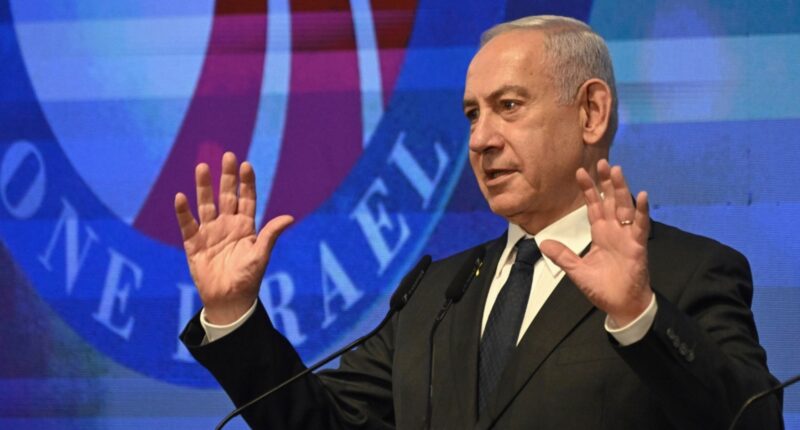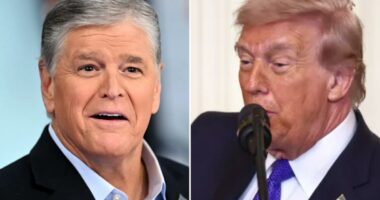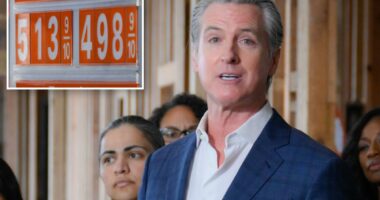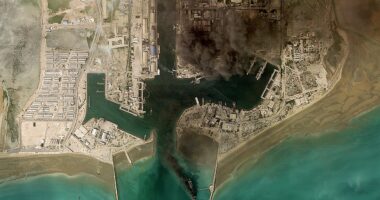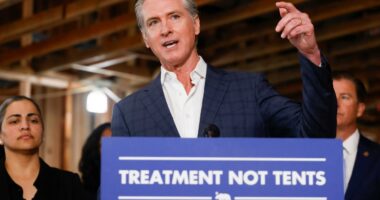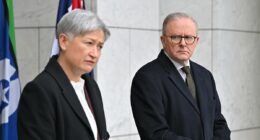Share this @internewscast.com
The Israeli Prime Minister Benjamin Netanyahu, currently facing global isolation, accusations of war crimes, and mounting calls to halt a conflict he continues to escalate, is set to address the international community on its largest stage on Friday.
Netanyahu’s yearly address to the U.N. General Assembly garners significant attention, often inciting protests and characterised by its assertive tone, with occasional startling claims. This year, however, the implications are more significant than ever for the Israeli leader.
In recent days, Australia, Canada, France, the United Kingdom and others announced their recognition of an independent Palestinian state.
The European Union is contemplating the imposition of tariffs and sanctions on Israel. Recently, the assembly passed a nonbinding resolution urging a commitment from Israel to establish an independent Palestinian state, which Netanyahu has already dismissed.
The International Criminal Court has issued an arrest warrant accusing Netanyahu of crimes against humanity, charges which he refutes. Meanwhile, the U.N.’s highest court is deliberating claims from South Africa accusing Israel of committing genocide in Gaza, allegations Israel strongly denies.
Amid these challenges, as Netanyahu departed Israel on Thursday to attend the U.N.’s annual high-level meeting in New York, he appeared determined.
“I will present our truth,” Netanyahu stated. “I will denounce those leaders who wish to offer statehood to those involved in heinous acts against innocent children, right in the heart of Israel.”
Opposition to Netanyahu’s approach is growing
At a special session of the assembly this week, nation after nation expressed horror at the 2023 attack by Hamas militants that killed about 1,200 people in Israel, saw 251 taken hostage and triggered the war. Many of the representatives went on to call for an immediate ceasefire in Gaza and influx of aid.
Israel’s sweeping offensive has killed more than 65,000 Palestinians in Gaza and displaced 90 percent of its population, with an increasing number now starving.
While more than 150 countries now recognize a Palestinian state, the United States has not, providing Israel with vociferous support. But President Donald Trump pointedly signaled Thursday there are limits, telling reporters in Washington that he wouldn’t let Israel annex the occupied West Bank.
Israel hasn’t announced such a move, but several leading members in Netanyahu’s government have advocated doing so. And officials recently approved a controversial settlement project that would effectively cut the West Bank in two, a move that critics say could doom chances for a Palestinian state. Trump and Netanyahu are scheduled to meet during his visit.
Palestinians had their UN say the day before
Netanyahu was preceded Thursday by Palestinian leader Mahmoud Abbas, who addressed the General Assembly via video, since the U.S. denied him a visa. He welcomed the announcements of recognition but said the world needs to do more to make statehood happen.
“The time has come for the international community to do right by the Palestinian people” and help them realize “their legitimate rights to be rid of the occupation and to not remain a hostage to the temperament of Israeli politics,” he said.
Abbas leads the internationally recognized Palestinian Authority, which administers portions of the West Bank. Hamas won legislative elections in Gaza in 2006 before seizing control from Abbas’ forces the following year.
Israel captured the West Bank, east Jerusalem and the Gaza Strip in the 1967 Mideast war, then withdrew from Gaza in 2005. The Palestinians want all three territories to form their envisioned state, part of a “two-state solution” that the international community has embraced for decades.
Netanyahu opposes it robustly, maintaining that creating a Palestinian state would reward Hamas.
“This will not happen,” he said at the airport Thursday.
___
Geller reported from New York.
Copyright © 2025 by The Associated Press. All Rights Reserved.
